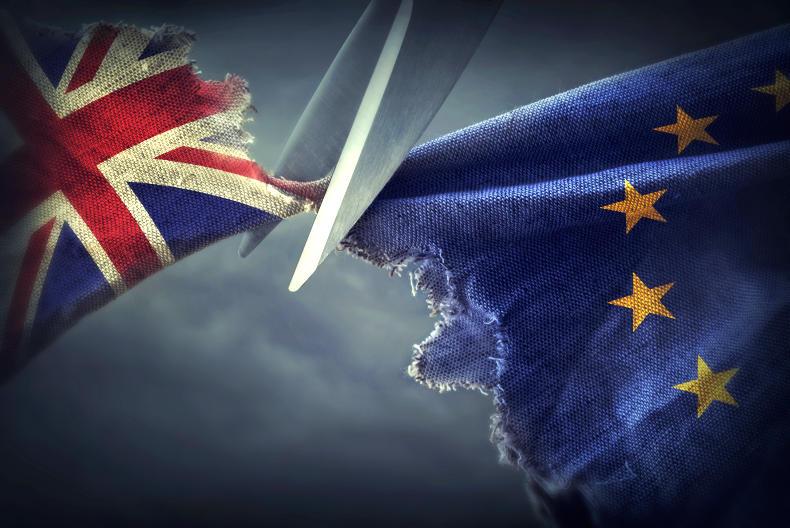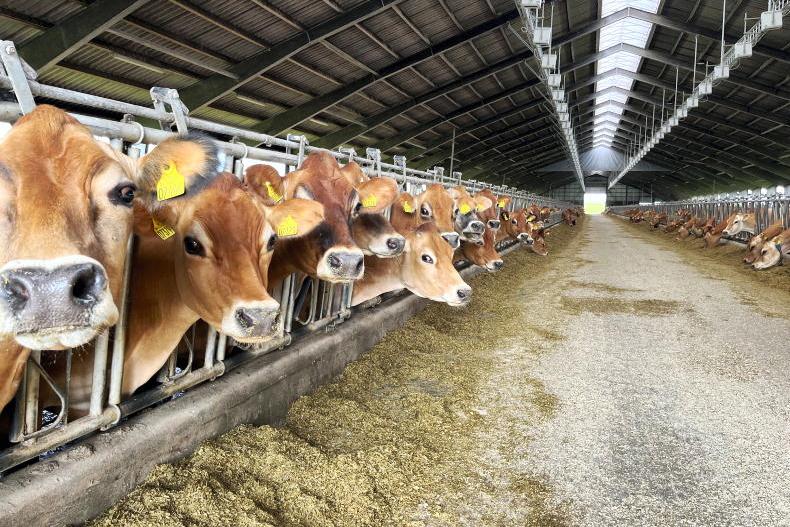The various policy positions put forward by the UK government on Brexit this week were an attempt to present a coherent picture as to how it would like to see future relationships with the EU develop. However, the vision presented by David Davis, the minister responsible for leading the UK out of Europe, merely reinforced the view that there is a total lack of understanding within the corridors of Westminster as to the complexity of the challenges that Brexit presents.
Davis is offering two proposals on a future customs relationship: either “a highly streamlined customs arrangement between the UK and the EU” or a “new customs partnership with the EU”. However, both proposals hinge on the UK retaining its freedom to agree third-country trade deals. This in-and-out approach to the customs union has been described within Brussels as a fantasy.
Meanwhile, the UK proposal to have an open border with Ireland can at best be described as aspirational and another example of an inability to join the dots.
What is worrying for Ireland is that as the Brexit clock ticks down, the chances of an agreement being reached on the future EU-UK trading relationship is becoming increasingly unlikely.
With less than 600 days to go until the UK leaves the EU, Ireland needs to know what happens if a cliff-edge hard Brexit becomes a reality. In this scenario, where subsequent trade would be governed by World Trade Organisation rules, Ireland would be left carrying 20% of the EU’s total tariff exposure, given its reliance on the British market.
While we can hope for the best, it is no longer tenable for the EU not to have a plan B in place as to how it will react to the fallout from a cliff-edge Brexit. Given the Irish exposure, we should be to the forefront in demanding such a contingency plan be presented to member states immediately.
From the perspective of Irish agriculture, the optimum is to achieve a trading relationship with the UK post-Brexit as close as possible to what currently exists. But the stakes are too high not to have a plan B. We need to know how the EU will protect Ireland’s agri-food sector in the wake of a hard Brexit.
We should not be afraid to go back to the future to try to find an appropriate response. The reintroduction of tools such as intervention purchases, export refunds to develop new third-country markets and even monetary compensatory payments to address currency fluctuation all need to come back on to the agenda.
With the forecast of euro-sterling parity becoming a reality, is the EU going to stand back and leave Ireland totally exposed?
Brussels may well shudder at the idea of dusting down these tools as the EU has become the star pupil of free trade and reducing support for agricultural production with the WTO.
Using these tools would feel like a retrograde step in the new trade-orientated EU.
However, as the EU moved out of these supports unilaterally, it could also unilaterally reintroduce them. A unique and dramatic disruption such as the loss of the UK beef and dairy market for Ireland would demand a necessary and proportionate response. The reintroduction of these tools would fit that description.
Many words have been spoken yet there is still no specific knowledge as to how Brexit will take shape.
Meanwhile, for Irish farmers, the reality is that beef and dairy production is a three-year cycle and the calves born this spring will hit the beef and dairy markets with the UK outside the EU.
Farmers rearing these calves need to know if there will be an outlet for their produce in 600 days’ time.
Read more
Colm McCarthy: flimsy customs union proposals
The various policy positions put forward by the UK government on Brexit this week were an attempt to present a coherent picture as to how it would like to see future relationships with the EU develop. However, the vision presented by David Davis, the minister responsible for leading the UK out of Europe, merely reinforced the view that there is a total lack of understanding within the corridors of Westminster as to the complexity of the challenges that Brexit presents.
Davis is offering two proposals on a future customs relationship: either “a highly streamlined customs arrangement between the UK and the EU” or a “new customs partnership with the EU”. However, both proposals hinge on the UK retaining its freedom to agree third-country trade deals. This in-and-out approach to the customs union has been described within Brussels as a fantasy.
Meanwhile, the UK proposal to have an open border with Ireland can at best be described as aspirational and another example of an inability to join the dots.
What is worrying for Ireland is that as the Brexit clock ticks down, the chances of an agreement being reached on the future EU-UK trading relationship is becoming increasingly unlikely.
With less than 600 days to go until the UK leaves the EU, Ireland needs to know what happens if a cliff-edge hard Brexit becomes a reality. In this scenario, where subsequent trade would be governed by World Trade Organisation rules, Ireland would be left carrying 20% of the EU’s total tariff exposure, given its reliance on the British market.
While we can hope for the best, it is no longer tenable for the EU not to have a plan B in place as to how it will react to the fallout from a cliff-edge Brexit. Given the Irish exposure, we should be to the forefront in demanding such a contingency plan be presented to member states immediately.
From the perspective of Irish agriculture, the optimum is to achieve a trading relationship with the UK post-Brexit as close as possible to what currently exists. But the stakes are too high not to have a plan B. We need to know how the EU will protect Ireland’s agri-food sector in the wake of a hard Brexit.
We should not be afraid to go back to the future to try to find an appropriate response. The reintroduction of tools such as intervention purchases, export refunds to develop new third-country markets and even monetary compensatory payments to address currency fluctuation all need to come back on to the agenda.
With the forecast of euro-sterling parity becoming a reality, is the EU going to stand back and leave Ireland totally exposed?
Brussels may well shudder at the idea of dusting down these tools as the EU has become the star pupil of free trade and reducing support for agricultural production with the WTO.
Using these tools would feel like a retrograde step in the new trade-orientated EU.
However, as the EU moved out of these supports unilaterally, it could also unilaterally reintroduce them. A unique and dramatic disruption such as the loss of the UK beef and dairy market for Ireland would demand a necessary and proportionate response. The reintroduction of these tools would fit that description.
Many words have been spoken yet there is still no specific knowledge as to how Brexit will take shape.
Meanwhile, for Irish farmers, the reality is that beef and dairy production is a three-year cycle and the calves born this spring will hit the beef and dairy markets with the UK outside the EU.
Farmers rearing these calves need to know if there will be an outlet for their produce in 600 days’ time.
Read more
Colm McCarthy: flimsy customs union proposals









SHARING OPTIONS